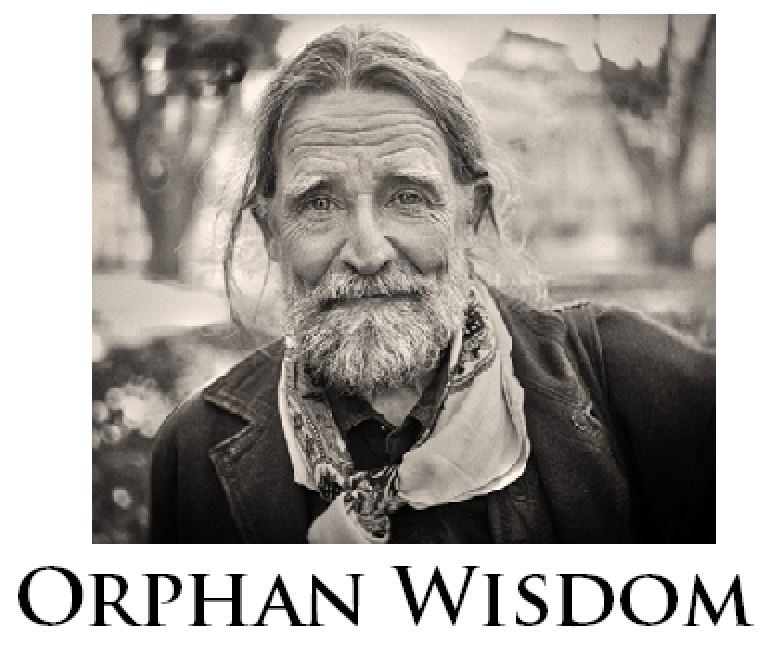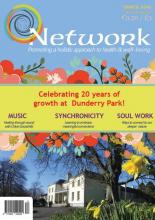Orphan Wisdom: Reflection on Death and Dying
by:
Stephen Jenkinson
Published:
Monday, June 22, 2015

I have worked and taught for two decades in the death trade. During most of that time I was lucky enough to know a blessing when I saw it. I sat with hundreds of dying people and their families and had the burdensome privilege of trying to help them die. I managed the counselling services of a very large urban palliative care programme. I designed and launched and directed a centre for children’s grief and palliative care from scratch, and was assistant professor in a prominent medical school. I have taught in more conferences, workshops and retreats than I wanted to. I was the subject of a major documentary film.
Early on in the business I saw that what passed for a fitting and deserved dying was very often sedated dying, or managed dying, or defeated dying, or collapse. I saw far too many people with well controlled pain and symptoms die in an unarticulated, low grade, grinding and unspectacular terror, anyway. I saw that antidepressants and sedation were the rule and not the exception. I saw the full panoply of medical technology unfurled for the benefit of dying people, and I saw that there wasn’t much practice wisdom nearly as vast or as well tested that was guiding its use. I saw the death phobia that permeates our time brought to bear upon dying people in the name of caring for them. And I saw that as a culture we have a withered psychology of coping and accepting where we might once have had a mythology and a poetry of purposed, meaningful dying. This poverty was the constant companion and chimera of almost every dying person I worked with.
So I started to do what no one was asking me to do. I worked a long time on the idea of a good death. I wondered how it is that things have come to what they are now, for dying people and their families and their caregivers. I started teaching that dying people deserved dying-centered care, a complete novelty then and probably now. I started asking all the old ideas that permeate the palliative care field in North America to earn their keep, and I found that many of them couldn’t do so. And then I started asking dying people to die well. Not encouraging them or inviting them or offering them the option or waiting until they were ready, but imploring them to do it. I began to teach the idea that dying well is a right of all dying people, and an obligation of the culture in which they are dying.
I have taught my ideas about dying to thousands of people working in the palliative care field in North America and Europe, and to the people who will one day be on the receiving end of that care. The reactions have been mixed. Many people working on the front line in medicine, continuing care and counselling institutions have some genuine relief when they hear these things, because it corroborates the uneasiness and hollow feeling they frequently have about how people die in their care, and because it gives them a sense that things could – must – be different. Their gratitude is often confused and unclear, but it is palpable.
Further up the food chain in palliative care organizations, where people in managerial positions tend more to identify themselves with the current treatment options and where they have the responsibility of delivering on the status quo, there was considerably more reluctance even to consider some of these ideas, and there was a good amount of hostility about them too. This continues to be so, and not just among them.
The care of dying people is as grim as it often is not because the caregivers want it that way, nor because they don’t care or are burned out or too rigid to change or not smart enough. Dying people and their families don’t want it that way either. Things are the way they are mainly by default. A real alternative, one that has a clinical, cultural, spiritual and political depth and corroboration in which we can plant the noble motivations and sentiments and the training that so many of us bring to this work, is rare. It is rare for the families that are trying to care for their dying loved ones. It is painfully rare for those people among us who now, without much fanfare or warning or teaching about it under their belts, are dying.
As it stands some version of this is coming to us all, our imaginations being stilled or addled by what passes for compassion and sanity and the way it goes, looking landward for some sign of shelter, some home for our great love of life and our last days.
Dying wise: that’s that antidote. Dying wise is the rumour around which all the attempts to control and manage and detoxify and assuage and domesticate and diminish dying swirl in our corner of the world. Dying wise is the unthinkable thought in a culture that does not believe in dying, and it will take about as much courage and wisdom as you can manage to do it. Dying wise is a life’s work.
I began years ago in the palliative care business, but I ended up in the redemption business. I am demanding wisdom for dying people and from them. I am making a plea for redeeming our way of dying. These are the bones of an orphan wisdom that I am certain, without much proof, that we remain capable of remembering and treasuring and acting upon: Dying well is a right of everyone.
Most would agree, but the agreement means little until we are willing to proceed as if dying well is also a shared responsibility, binding upon us all. Opting out of that agreement because of personal belief or professional prejudice will rob others of a chance to see and learn the possibility and the labour involved in dying well.
We have to widen the circle of responsibility far beyond doctors and nurses, until it includes extended family and neighbours and legislators and funeral directors and school curricula designers and nursing home managers, and dying people themselves. All of us are bound to each other by the shared obligation of securing good dying from the mayhem of managed, muted expiration that has become the norm.
Dying well is a moral obligation. It is not a matter of enlightened self-interest or personal preference. If you can begin to see how dying badly poisons the social, political, professional and personal discourse about the purpose and meaning of health care and social welfare and being born and dying, if you get a glimpse of how the concentric circles of mayhem and spell casting attending a bad death do not end with the end of that death but actually accelerate and deepen and turn into best practice manuals and family mythologies that have generations of unintended consequence, then you can know each death properly as another chance to die well and to learn the adult mystery of deep living in the face of what often seems to rob life of its depth. Dying well must become an obligation which living people and dying people owe to each other and to those to come.
Dying well is a political act. As soon as you begin to see how dying well challenges the old madnesses that pass for compassionate care and the orderly, meaning-free shuffle of a managed death, then you begin to know dying well as a great service and gift to those who are not yet dying. Dying well is the same kind of act as Gandhi’s cotton spinning or salt harvesting: a nonviolent insurrection that dares the status quo to oppose it or prevent it. Dying well gathers adversaries.
Dying well means dying knowing that there is much at stake for the greater good. Whose death is it, anyway? It is all of our deaths, one death at a time, until our time comes. It is one enduring place where we can declare what and who we are willing to be to each other. We can reclaim our way of dying and decide upon it. We can take it from the hands of professionalization and privacy and legislated monopoly only by assuming the greater responsibility of learning about death during the course of our lives, and by teaching it if we are able, and by being an exemplar, an incarnation of what we advocate when our time comes.
About the author:
Stephen Jenkinson, MTS, MSW is an activist, teacher, author and farmer. For thirty years he has been guiding people through the human sufferings, sorrows and confusions in life. He has Master’s degrees from Harvard University (Theology) and the University of Toronto (Social Work). After an apprenticeship to a musician storyteller he worked with dying people and their families. Formerly a programme director in a major Canadian hospital, Stephen now teaches the skills of living deeply and dying well. He is founder and principal instructor of The Orphan Wisdom School, has written several books and is the subject of the documentary film Griefwalker.
Related Links:
In Issue:
Latest Issue
Upcoming Events
-
17/04/2020 to 26/04/2020
-
18/04/2020
-
23/04/2020
-
15/05/2020 to 23/05/2020
-
16/05/2020 to 17/05/2020
Recent Articles
Article Archive
- November 2011 (2)
- January 2012 (3)
- February 2012 (2)
- March 2012 (2)
- April 2012 (4)
- May 2012 (4)
- June 2012 (1)
- July 2012 (3)
- August 2012 (2)
- October 2012 (2)

